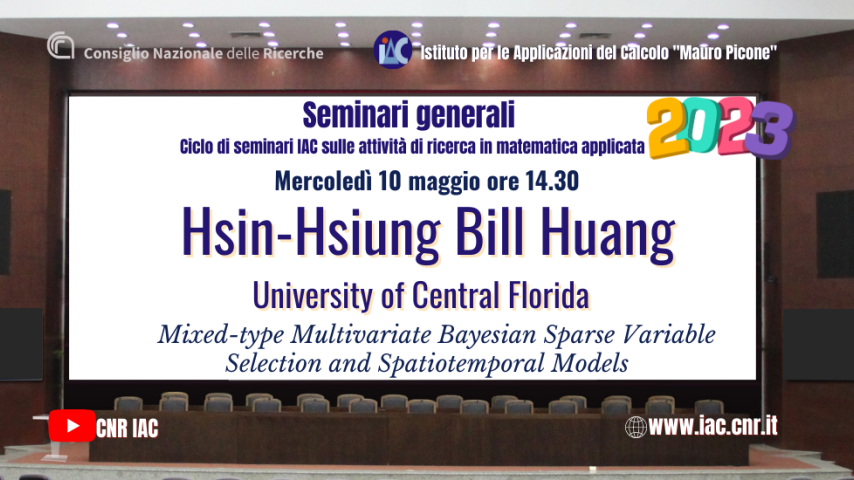
Mercoledì 10 maggio un nuovo seminario della serie "Seminari generali dell'IAC 2023".
Ospite è Hsin-Hsiung Bill Huang, Professore associato presso il Department of Statistics and Data Science della University of Central Florida.
Titolo del seminario: Mixed-type Multivariate Bayesian Sparse Variable Selection and Spatiotemporal Models.
Abstract: We introduce a Bayesian framework for mixed-type multivariate regression using shrinkage priors. Our method enables joint analysis of mixed continuous and discrete outcomes and facilitates variable selection when the number of covariates $p$ can be much larger than sample size $n$.
Our model can be implemented using a Gibbs sampling algorithm where all of the conditional distributions are tractable. Theoretically, we show that the posterior contracts around the true parameter in mixed-response models when $p$ grows subexponentially with $n$. To cope with the high computational cost when $p$ is large, we introduce a simple two-step variable selection approach. We prove that our two-step Markov chain Monte Carlo algorithm possesses the sure screening property and achieves a faster mixing time than the conventional one-step Gibbs sampler. Moreover, our two-step estimator can provably achieve posterior consistency even when $p$ grows exponentially in $n$, thus overcoming a limitation of the one-step estimator. Numerical studies and analyses of real datasets demonstrate the ability of our joint modeling approach to improve predictive accuracy and identify significant variables in multivariate mixed response models. Besides, we also develop a Bayesian zero-inflated negative binomial regression model using Gaussian processes for the spatial and temporal random effects. The proposed model improves the model fitting and predictability compared with the smoothing splines random effects by the real data examples including the Florida COVID-19 mortality data and the National Ecological Observatory Network (NEON) biodiversity data.







